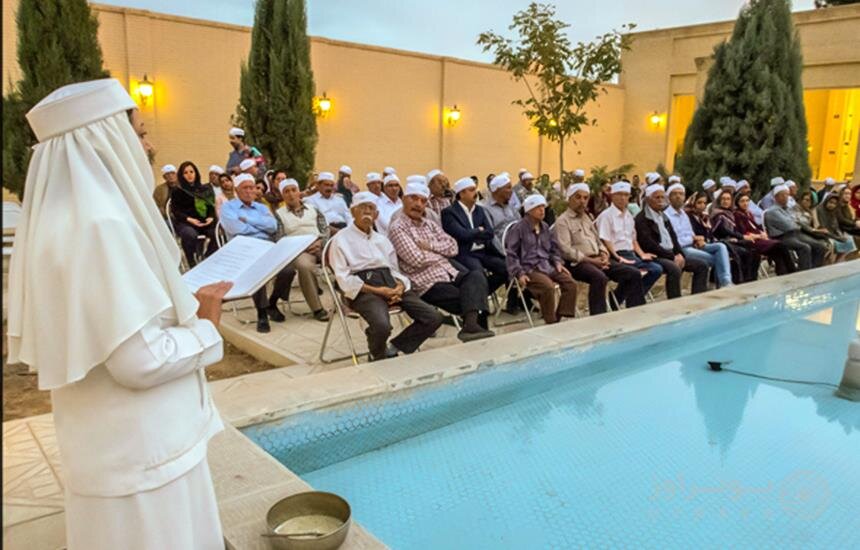Abanegan: forgotten festival commemorating water as a source of life

TEHRAN - Perhaps today we do not hold water as sacred as we should for this source of life. Maybe pollution and over consumption of water have become part of our daily habits.
Moreover, we may not notice the water shortage crisis as much as we should, but once upon a time in ancient Iran, this element of life was very sacred and the people of that time believed that they should never pollute the water and this too was considered a crime.
Jashan-e Abanegan is an ancient Iranian festival held to commemorate water as nature’s most precious treasure, and pay tribute to Anahita, a deity assigned to water, fertility, and prosperity.
Abanegan was widely considered a festival of gratitude and reflection, offering offerings to the waters themselves in streams, lakes, ponds, rivers, and ocean shores.
The feast is usually celebrated on the day of Aban, usually occurring around October 26th according to a special calendar used by many Iranian Zoroastrians.
According to the World Zoroastrian Organization, Abanegan was usually celebrated by Zoroastrian communities in both Pre-Islamic and Pahlavi times as a celebration of the life-giving and Mazda-blessed waters, much like today, but with an emphasis on visiting shrines and temples dedicated to Anahita and the Abans.
Most of the shrines surrounding tales of Sassanid princesses saved by the grounds of the shrines are likely to have been shrines to Anahita in pre-Islamic times. Records of Abanegan’s celebration have been noted by ancient and medieval authors as having occurred in pre and post-Islamic times in not just the core of the Iranian lands but also Yemen, Egypt, China, India, and more.
Anahita was believed to manifest in the spiritual realm as the source of all waters from the top of the holy mountain of Hara Berezaiti (connected to the Alborz Mountains of modern-day Iran). From here, water and wisdom would flow, which would make both the soil and the mind fecund towards virtuousness and prosperity.
Legends of the Shahnameh, the Iranian poetic epic that consists mostly of Zoroastrian tales reinterpreted after the Islamic Conquest of Persia by the poet Ferdowsi, were also incorporated into the stories surrounding the festival. Such stories include that Shah Zav, the son of Shah Tahmurasp, instituted the celebration of his ascension to the throne during which great works were conducted regarding water-related infrastructure.
As such, festival celebrations in these times also included the inauguration of such projects on both a community and imperial scale.
Another story that has been mentioned about Abangan is that there was a drought in Iran for eight years, and many died in this famine.
Abanegan is still celebrated not just in Iran and other Iranian-adjacent countries but also internationally wherever the Iranian diaspora and Zoroastrians are to be found but seems to be mostly celebrated by Zoroastrians these days. On this day, Zoroastrian clergy traditionally organize Jashans, celebrations of thanksgiving, and provide prayers and blessings to the laypeople.
Believers still head out to the waters to offer thanks, gifts, and prayers towards the waters, including the recitation of the Aban Yasht and the Aban Niyayesh since both, are dedicated to the Abans and Anahita. In some communities, women are celebrated alongside the Abans as being divinely connected to the life-giving and Mazda-blessed waters, and sometimes women lead the festivities and rituals, especially in their households. It may not have the same pomp and ceremony as many of the other Zoroastrian festivals, but it is nonetheless still devotedly celebrated by Zoroastrians worldwide.
Many Zoroastrians may see Abanegan as a festival to not just honor how important the waters are to our very survival and development as individuals and communities but also as a warning of the continuing degradation, pollution, and utter disregard of what may be one of the most important substances of human existence, spiritual or not.
Abangan was usually celebrated on the 10th day of Aban in the old calendars, but with the change of days in the new calendars, sometimes this celebration is held on the 4th of Aban.
AM
